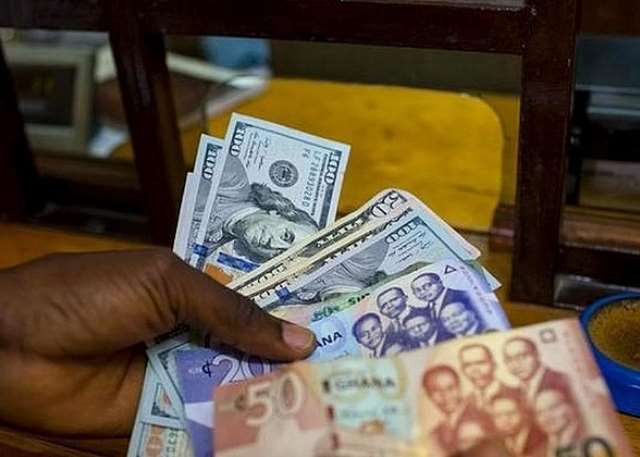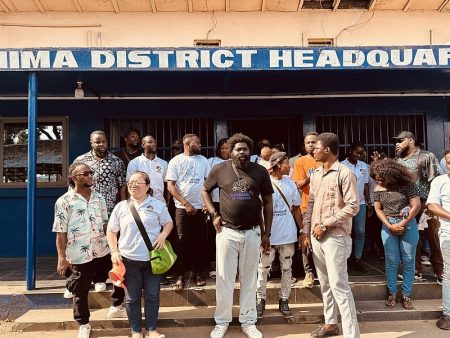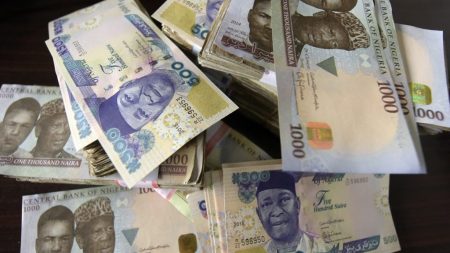The Ghanaian cedi exhibited a strengthening trend against the United States dollar on Tuesday, February 18, 2025, marking a positive shift in the currency’s performance. According to data from Cedirates.com, a reliable platform for currency updates in Ghana, the cedi’s buying rate against the dollar stood at GHS15.32, while the selling rate reached GHS15.80. This represented a 3-pesewa appreciation in both buying and selling rates compared to the averages recorded on the previous day, Monday. This upward movement suggests a potential recovery for the cedi, which has faced periods of volatility against major international currencies in the past. The improvement in the cedi’s value against the dollar could be attributed to various factors, including positive economic indicators, increased investor confidence, or favorable market conditions.
A closer examination of the forex bureau rates reveals a slightly different picture. While generally aligned with the overall strengthening trend, these rates offer a marginally less favorable exchange for individuals. For those looking to exchange US dollars for Ghanaian cedis, the rate at forex bureaus was GHS15.40 per dollar. Conversely, those converting cedis to dollars faced a rate of GHS15.85 per dollar. This slight premium at forex bureaus is typical, reflecting the operational costs and profit margins of these businesses. The difference between the Cedirates.com averages and the forex bureau rates underscores the importance of comparing rates from various sources before conducting currency exchanges. By doing so, individuals can ensure they receive the most competitive rates available.
The interbank market, where financial institutions trade currencies amongst themselves, presented yet another perspective on the cedi’s performance. The interbank buying rate for the dollar was GHS15.49, while the selling rate was GHS15.51. This tighter spread between buying and selling rates in the interbank market is characteristic of large-volume transactions and reflects the reduced risk and overhead costs associated with these trades. The interbank rates serve as a benchmark for the broader currency market and can influence the rates offered by forex bureaus and other exchange providers. The relatively strong performance of the cedi on the interbank market further reinforces the observed trend of strengthening against the dollar.
Beyond the dollar, the Ghanaian cedi also demonstrated relative strength against other major currencies, including the British pound and the euro. The average exchange rate for converting British pounds to cedis was GHS19.21, while the reverse conversion from cedis to pounds stood at GHS19.90. Similarly, the euro traded at an average rate of GHS15.93 for those exchanging euros for cedis and GHS16.60 for cedis to euros conversions. These rates suggest a generally positive outlook for the cedi in the broader international currency market. The relatively stable performance against these major currencies could indicate a strengthening of the Ghanaian economy and increased confidence in its stability.
The Bank of Ghana’s interbank market rates, which play a significant role in setting the benchmark for currency exchange in the country, further confirmed the cedi’s robust performance. The pound was selling at GHS19.56 on this market, while the euro traded at GHS16.25. These rates, often considered the most authoritative indicators of currency value, reinforce the observations from other segments of the market. The consistency across different market segments, from forex bureaus to the interbank market, indicates a genuine strengthening of the cedi rather than a temporary fluctuation. This consistent strength could attract foreign investment and potentially contribute to overall economic growth.
For individuals sending money to Ghana from abroad, money transfer services like LemFi and Afriex offered competitive rates. LemFi offered a rate of GHS15.36 per dollar for transfers from the US or the UK, while Afriex offered a slightly higher rate of GHS15.40 per dollar for the same transfer route. For British pound transfers, LemFi provided a rate of GHS19.28, and Afriex offered GHS19.72 per pound. Euro transfers through Afriex were priced at GHS16.14 per euro, while LemFi’s rate was GHS15.99 per euro. These rates, often more favorable than traditional banking channels, offer a cost-effective way for individuals to send remittances to Ghana. The competition between these money transfer operators ultimately benefits consumers by providing more choices and driving down transfer costs. For those making digital subscription payments for services like Netflix, Spotify, or Apple Music using Visa and Mastercard, the exchange rates were GHS16.64 and GHS16.59, respectively. This information provides a comprehensive overview of the Ghanaian cedi’s performance against major international currencies on Tuesday, February 18, 2025, highlighting its strengthening trend and the various rates available across different market segments.













